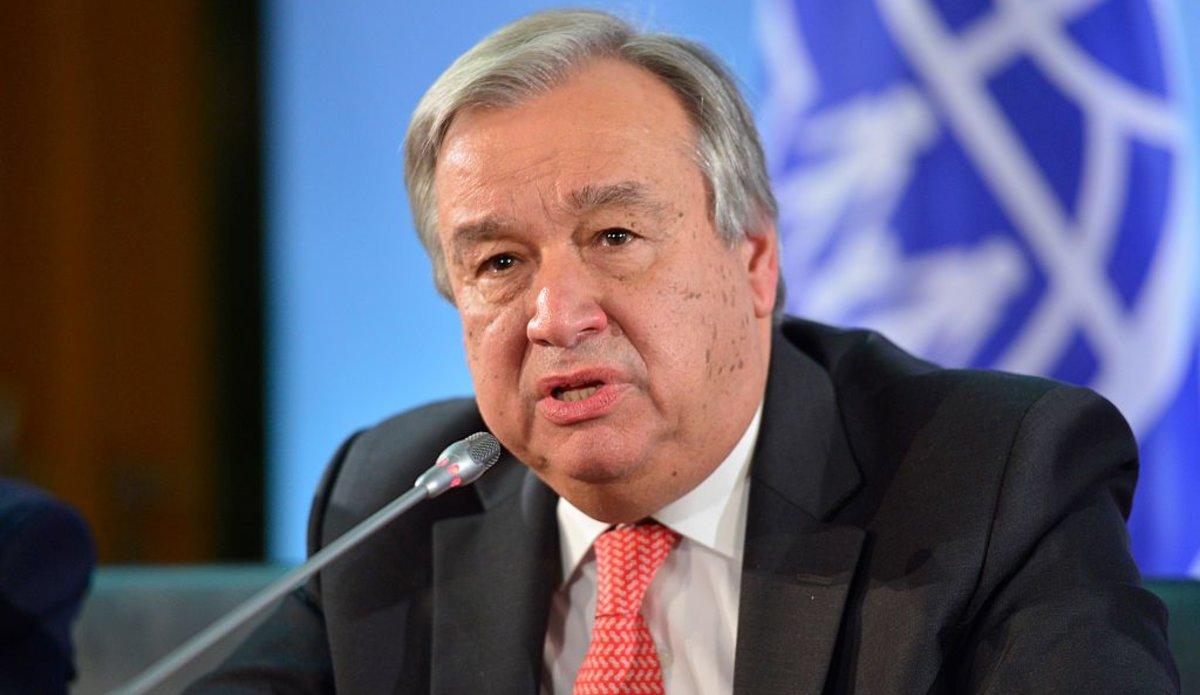Africa-Press – Eswatini. UN Secretary-General António Guterres yesterday urged Governments around the world to increase funding for Education, stressing that this is the “most important investment any country can make”.
Guterres spoke on the last day of the Summit on the Transformation of Education, one of the main events of the 77th session of the UN General Assembly, in which he praised Education as “transforming lives, economies and societies”, but stressed that he also it needs transformation, as it is in “deep crisis”.
The secretary-general warned that around 70% of 10-year-olds in poor countries are unable to read a basic text, explaining that developed nations also suffer from problems, where “education systems often consolidate, rather than reduce, the inequalities, reproducing them across generations”.
“The rich have access to the best resources, schools and universities, leading to the best jobs, while the poor – especially girls – face enormous obstacles to gaining life-changing skills. Displaced people and students with disabilities face the biggest obstacles of all. “, he indicated, adding that the covid-19 pandemic had a “devastating impact on learning around the world”.
Criticizing education systems that encourage machine learning and competition for grades, the UN leader noted that often “school curricula are out of date”, “educational systems give little importance to lifelong learning”, “teachers are poorly trained, undervalued and underpaid”, the “digital divide penalizes poor students” and the “Education funding gap is wider than ever”.
“We are not going to end this crisis simply by doing more of the same, faster or better. Now is the time to transform education systems,” he appealed.
In this sense, and to move “from vision to reality”, the former Portuguese prime minister presented five steps, with which he hopes the leaders present at the summit will commit.
First, and in a direct message to Afghanistan – where the Taliban have banned secondary schools for girls – Guterres called for the right to quality education to be protected for all, especially girls.
“Schools must be open to all, without discrimination. (…) From this platform, I appeal to the Afghan authorities: immediately lift all restrictions on girls’ access to secondary education. Girls’ education is among the most important steps important to provide peace, security and sustainable development everywhere,” he urged.
The second step was dedicated to teachers, who Guterres called “the lifeblood of education systems”, advocating a new focus for their roles and qualifications.
“We also need to address the global shortage of teachers and seek to increase their quality by raising their status and ensuring they have decent working conditions and opportunities for ongoing training and learning,” he said.
Third, the United Nations leader stressed that schools must become safe and healthy spaces, with no place for violence, stigma or intimidation, and that education systems must promote the physical and mental health of all students – including the sexual and reproductive health.
A digital revolution accessible to all students was the fourth point indicated by Guterres, urging countries to improve connectivity for students and educational institutions.
It also encouraged Governments and teachers to work with private sector partners on high quality digital education content.
Finally, António Guterres called for a commitment to a greater budget for Education, stressing that none of the above points will be achieved without an increase in Education funding and global solidarity.
“During these difficult times, I urge all countries to protect education budgets and ensure that spending translates into progressive increases in resources per student and better learning outcomes. Education funding must be a priority for governments. the most important investment any country can make in its people and in its future”, he advocated.
The secretary-general also called on international financial institutions to make resources and budget space available for developing countries to invest in this sector and urged “development partners to reverse the cuts and dedicate at least 15% of official assistance to education”.
Guterres also encouraged international financial institutions to use the International Finance Fund for Education, “a new tool that aims to mobilize US$10 billion (approximately the same amount in euros) to help 700 million children in poor countries gain access to quality education.
“We will ensure that today’s students and future generations can access the education they need to create a more sustainable, inclusive, just and peaceful world for all,” he concluded.
The Education Transformation Summit, which began last Friday, brought together young people, teachers, civil society and other organizations in New York to support the transformation of Education around the world, as well as members of Governments, from whom a series of National Declarations of Commitment is expected.
Portugal was represented at the Summit by the Minister of Education, João Costa, who met on Friday with António Guterres, and by the Prime Minister, António Costa.
For More News And Analysis About Eswatini Follow Africa-Press







